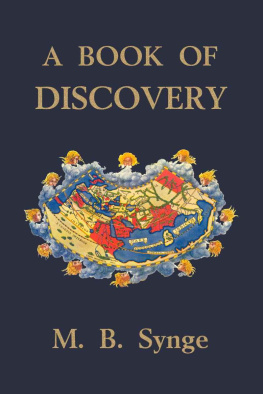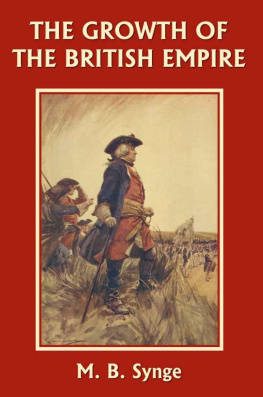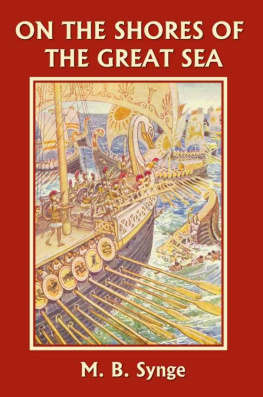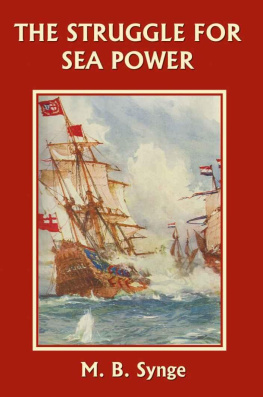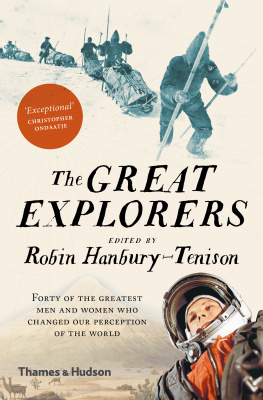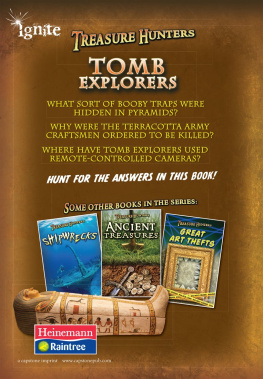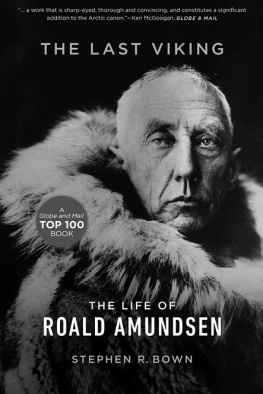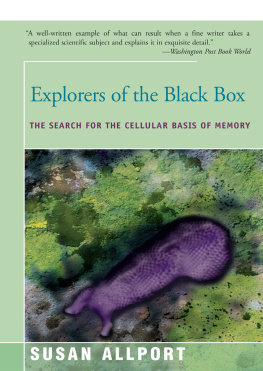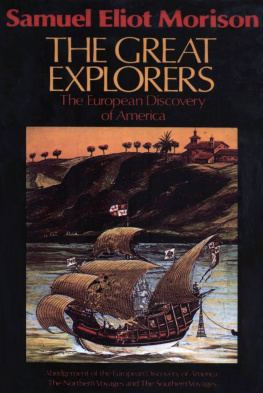A Book of Discovery
by
M. B. Synge
Yesterday's Classics
Chapel Hill, North Carolina
Cover and Arrangement 2010 Yesterday's Classics, LLC
All rights reserved. No part of this book may be reproduced or retransmitted in any form or by any means without the written permission of the publisher.
This edition, first published in 2010 by Yesterday's Classics, an imprint of Yesterday's Classics, LLC, is an unabridged republication of the work originally published by G. P. Putnam's Sons in 1912. This title is available in a print edition (ISBN 978-1-59915-192-2).
Yesterday's Classics, LLC
PO Box 3418
Chapel Hill, NC 27515
Yesterday's Classics
Yesterday's Classics republishes classic books for children from the golden age of children's literature, the era from 1880 to 1920. Many of our titles are offered in high-quality paperback editions, with text cast in modern easy-to-read type for today's readers. The illustrations from the original volumes are included except in those few cases where the quality of the original images is too low to make their reproduction feasible. Unless specified otherwise, color illustrations in the original volumes are rendered in black and white in our print editions.
Introduction
"Hope went before them, and the world was wide."
Such was the spirit in which the exploration of the world was accomplished. It was the inspiration that carried men of old far beyond the sunrise into those magic and silent seas whereon no boat had ever sailed. It is the incentive of those to-day with the wander-thirst in their souls, who travel and suffer in the travelling, though there are fewer prizes left to win. But
"The reward is in the doing,
And the rapture of pursuing
Is the prize."
"To travel hopefully," says Stevenson, "is a better thing than to arrive." This would explain the fact that this Book of Discovery has become a record of splendid endurance, of hardships bravely borne, of silent toil, of courage and resolution unequalled in the annals of mankind, of self-sacrifice unrivalled and faithful lives laid ungrudgingly down. Of the many who went forth, the few only attained. It is of these few that this book tells.
"All these," says the poet in Ecclesiastes"all these were honoured in their generation, and were the glory of their times... their name liveth for evermore."
But while we read of those master-spirits who succeeded, let us never forget those who failed to achieve.
"Anybody might have found it, but the Whisper came to Me."
Enthusiasm too was the secret of their success. Among the best of crews there was always some one who would have turned back, but the world would never have been explored had it not been for those finer spirits who resolutely went oneven to the death.
This is what carried Alexander the Great to the "earth's utmost verge," that drew Columbus across the trackless Atlantic, that nerved Vasco da Gama to double the Stormy Cape, that induced Magellan to face the dreaded straits now called by his name, that made it possible for men to face without flinching the ice-bound regions of the far North.
"There is no land uninhabitable, nor sea unnavigable," asserted the men of the sixteenth century, when England set herself to take possession of her heritage in the North. Such an heroic temper could overcome all things. But the cost was great, the sufferings intense.
"Having eaten our shoes and saddles boiled with a few wild herbs, we set out to reach the kingdom of gold," says Orellana in 1540.
"We ate biscuit, but in truth it was biscuit no longer, but a powder full of worms,so great was the want of food, that we were forced to eat the hides with which the mainyard was covered; but we had also to make use of sawdust for food, and rats became a great delicacy," related Magellan, as he led his little ship across the unknown Pacific.
Again, there is Franklin returning from the Arctic coast, and stilling the pangs of hunger with "pieces of singed hide mixed with lichen," varied with "the horns and bones of a dead deer fried with some old shoes."
The dangers of the way were manifold.
For the early explorers had no land map or ocean chart to guide them, there were no lighthouses to warn the strange mariner of dangerous coast and angry surf, no books of travel to relate the weird doings of fierce and inhospitable savages, no tinned foods to prevent the terrible scourge of sailors, scurvy. In their little wooden sailing ships the men of old faced every conceivable danger, and surmounted obstacles unknown to modern civilisation.
"Now strike your Sails ye jolly Mariners,
For we be come into a quiet Rode."
For the most part we are struck with the light-heartedness of the olden sailor, the shout of gladness with which men went forth on these hazardous undertakings, knowing not how they would arrive, or what might befall them by the way, went forth in the smallest of wooden ships, with the most incompetent of crews, to face the dangers of unknown seas and unsuspected lands, to chance the angry storm and the hidden rock, to discover inhospitable shores and savage foes. Founded on bitter experience is the old saying
"A Passage Perilous makyth a Port Pleasant."
For the early navigators knew little of the art of navigation.
Pytheas, who discovered the British Isles, was "a great mathematician." Diego Cam, who sailed to the mouth of the Congo, was "a knight of the King's household." Sir Hugh Willoughby, "a most valiant gentleman." Richard Chancellor, "a man of great estimation for many good parts of wit in him." Anthony Jenkinson, a "resolute and intelligent gentleman." Sir Walter Raleigh, an Elizabethan courtier, and so forth.
It has been obviously impossible to include all the famous names that belong to the history of exploration. Most of these explorers have been chosen for some definite new discovery, some addition to the world's geographical knowledge, or some great feat of endurance which may serve to brace us to fresh effort as a nation famous for our seamen. English navigators have been afforded the lion's share in the book, partly because they took the lion's share in exploring, partly because translations of foreign travel are difficult to transcribe. Most of these stories have been taken from original sources, and most of the explorers have been allowed to tell part of their own story in their own words.
Perhaps the most graphic of all explorations is that written by a native of West Australia, who accompanied an exploring party searching for an English lad named Smith, who had been starved to death.
"Away, away, away, away; we reach the water of Djunjup; we shoot game. Away, away, away through a forest away, through a forest away; we see no water. Through a forest away, along our tracks away; hills ascending, then pleasantly away, away, through a forest away. We see a wateralong the river awaya short distance we go, then away, away, away through a forest away. Then along another river away, across the river away. Still we go onwards, along the sea away, through the bush away, then along the sea away. We sleep near the sea. I see Mr. Smith's footsteps ascending a sandhill; onwards I go regarding his footsteps. I see Mr. Smith dead. Two sleeps had he been dead; greatly did I weep, and much I grieved. In his blanket folding him, we scraped away the earth. The sun had inclined to the westward as we laid him in the ground."
The book is illustrated with reproductions from old mapsold primitive maps, with a real Adam and Eve standing in the Garden of Eden, with Pillars of Hercules guarding the Straits of Gibraltar, with Paradise in the east, a realistic Jerusalem in the centre, the island of Thule in the north, and St. Brandon's Isles of the Blest in the west.

